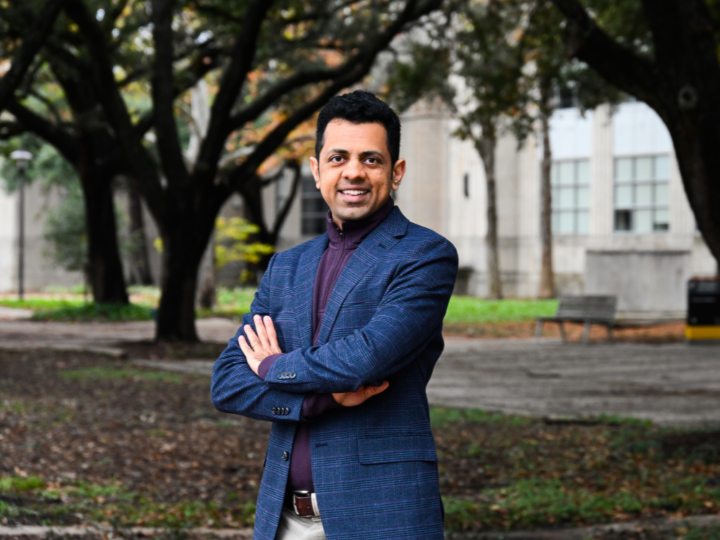As the "Energy University" committed to shepherding an efficient and innovative energy transition, the University of Houston is offering a timely micro-credential course focused on artificial intelligence and robotics for energy integrity and maintenance. The course, titled "AI & Robotics for Energy Integrity," runs from March 22 - April 12, 2024.

In the dynamic world of energy, the integration of robotics into inspection processes is a game-changer, significantly enhancing data collection efficiency and strategic decision-making. Energy infrastructure assets cover large areas, often in tricky and unsafe places. Checking these areas manually takes a long time, is risky, expensive and not always dependable. AI and robots can jointly address these challenges. AI-powered robots can navigate energy sites tirelessly, using special sensors to gather data. Then, other AI methods can quickly process all that data to find any unusual situations that need human attention. This teamwork of AI and robots, guided by skilled human operators, ensures a thorough and efficient way of managing energy assets.
Recognizing the demand for robust data analysis and innovative management solutions, UH designed the course to empower engineers, technicians and industry professionals with advanced knowledge in the dynamic fields of robotics and AI.
"As industries increasingly adopt AI and robotics for various applications, the demand for skilled professionals who understand these technologies is growing. This course aims to equip participants with the essential skills," said Vedhus Hoskere, assistant professor at the UH Cullen College of Engineering, who will be teaching the module titled "Computer Vision and Deep Learning for Inspections." Hoskere was recently awarded a grant for a project exploring how to best leverage technology like drones, cameras, sensors and AI to gather data about bridges and use it to make critical decisions and improve safety.

As the world and the energy sector continue to evolve, understanding the synergies between these cutting-edge technologies is critical for maintaining integrity and efficiency.
Course attendees will gain valuable insights covering, but not limited to:
- Efficiency through Robotics: Integrating robotics into inspection processes significantly enhances efficiency in data collection, setting the stage for unprecedented advancements in the energy industry.
- Data Analysis and Management: The ability of robots to gather extensive data has strengthened the demand for robust data analysis and management solutions. AI emerges as a powerful tool, transforming complex data sets into valuable insights that drive efficiency, innovation and informed decision-making across various industries.
- Revolutionizing Inspection Methodologies: The synergistic use of robots and AI has the potential to revolutionize inspection methodologies, streamline processes and set new industry benchmarks.
Curriculum highlights include:
- AI in Autonomy and Risk Assessment: Explore how AI enhances autonomy in obstacle avoidance, risk assessment and data analysis through integrated sensors.
- Three Popular Use-Cases: Gain hands-on experience in machine learning for non-destructive testing (NDT), deep learning for vision-based analysis of inspection data and photogrammetry for rapid 3D reconstruction essential for digital twinning.
- Practical Implementation: The course not only offers theoretical knowledge but also provides practical insights into implementing these technologies in real-world scenarios.
The course offers an opportunity for participants to gain hands-on experience and demonstration of cutting-edge AI and robotics technologies.
"By blending theoretical knowledge with practical applications and hands on experience, the course aims to empower participants with the skills needed to evaluate and adopt these advanced technology to address real-world challenges in asset management," Hoskere said. "We hope that upskilling and knowledge gained from this course will help accelerate the adoption of AI and robotics and contribute to the advancement of safer and more resource efficient energy infrastructure systems."
In addition to Hoskere, other globally renowned academic and industry robotics experts teaching sessions include:
- Kimberley Hayes, founder of Valkim Technologies, is the lead speaker for this course. She will provide a comprehensive overview and introduction of AI applications, standards and certification.
- Gangbing Song, Moores Professor of Mechanical Engineering at UH, will teach the machine learning (ML) component with hands-on exercises. His research team recently proposed a novel detection method for pipeline elbow erosion combining percussion, variational mode decomposition (VMD) and deep learning.
- Pete Peterson, head of product management and marketing with XaaS Lab, will discuss the current applications of computer vision technology in the oil and gas industry.
- Matthew Alberts, head of project management with Future Technologies Venture Venture, LLC, will cover integration topics, such as use cases, workflow and optimizing inspections with AI and drones.
- Suchet Bargoti – chief technology officer at Abyss Solutions, which focuses on computer vision, AI and robotics solutions for offshore infrastructure – will present insights of using AI and robots for integrity management.
The course combines synchronous online lectures and in-person hands-on & demonstrations. The full price is $1,400, and the online Zoom sessions can be registered independently at $800 per person for those who can't attend the in-person session. Discounts are offered for early registration. Professional development hours and continuing education units are available. This course is funded by the U.S. Department of the Treasury through the State of Texas with funding under the Resources and Ecosystems Sustainability, Tourist Opportunities and Revived Economies of the Gulf Coast States Act of 2012 (RESTORE Act).
WHAT: AI & Robotics for Energy Integrity Micro-Credential Course
WHO: The University of Houston Subsea Systems Institute (SSI).
WHERE: Online and In-person options available.
WHEN: March 22 - April 12, 2024; Early registration deadline: Friday, Feb. 23, 2024.
To learn more about the event and to register, click here.
Course Information Session: 9 - 9:30 a.m. Friday, Feb. 23, 2024. Click here to register.






